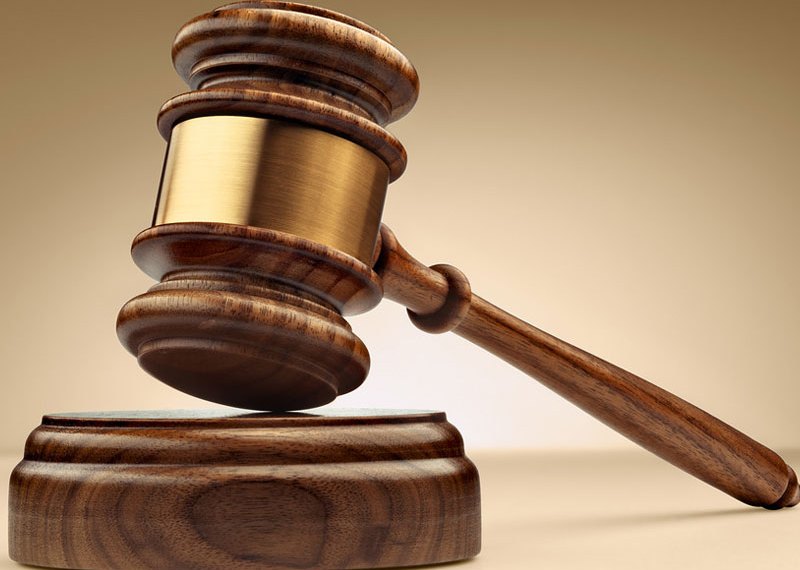...To get all news updates, Join our WhatsApp Group (Click Here)
Also Join our WhatsApp Channel (Click Here)
The Court of Appeal in Abuja has stayed the execution of a Federal High Court judgment which barred the Economic and Financial Crimes Commission (EFCC) from investigating Leno Adesanya, the promoter of Sunrise Power and Transmission Ltd, over criminal allegations related to the $6 billion Mambilla hydropower contract.
The appeal court delivered the verdict on Thursday in an application for stay filed by the Attorney General of the Federation’s counsel, T.A. Gazali SAN.
We had previously reported that Justice Inyang Ekwo of the trial court had ordered the EFCC to immediately remove Leno Adesanya, the promoter of Sunrise Power and Transmission Ltd, from its wanted list in connection with any criminal allegations related to the $6 billion Mambilla hydropower contract.
Justice Ekwo issued the judgment on Monday, September 23, 2024, in a suit filed by Adesanya’s lawyer, M.S. Diri SAN, against the EFCC, the Federal Ministry of Power and Steel, the Federal Government of Nigeria, and the Attorney General of the Federation.
The EFCC had declared Adesanya wanted for “an alleged case of conspiracy and corrupt offer to public officers” related to the Mambilla project.
However, the applicant’s lawyer, Diri, sought a perpetual injunction restraining the EFCC from further investigating, inviting, or publishing his client’s name as a wanted person over the Mambilla Hydroelectric Power Project, citing a pending case at the International Chamber of Commerce Court of Arbitration in Paris.
What Transpired at the Trial Court
During the proceedings at the lower court, Adesanya’s lawyer asked the court to determine the propriety of the EFCC’s powers to investigate the commercial transaction between his client, the federal government, and the Ministry of Power.
Diri argued that Adesanya, seeking to ensure sustainable power in Nigeria, proposed constructing the Mambilla Hydroelectric Project through Sunrise as the special purpose vehicle to drive the project.
He noted that Sunrise and its Chinese partners, North China Power and China Hydroelectric companies, held various meetings in China with three Power Ministers regarding the Zungeru and Mambilla projects.
He submitted that in 2005 and 2006, ex-President Obasanjo approved financial negotiations for the project, but to date, no funds have been disbursed by the federal government to the plaintiffs regarding the contract.
He said that in an effort to amicably resolve the issues concerning the project, the company wrote letters to the Ministry of Power, leading to meetings between his clients and the executive branch of government.
He added that by a letter dated April 22, 2020, rather than honoring the agreement, the federal government wrote through the Attorney General seeking a review of the terms.
He stated that arbitral proceedings had been scheduled for a virtual hearing on March 22, 2024, on the issue. However, despite the pending case, the federal government and its security agencies, including the EFCC, have sought to criminalize and scandalize the Mambilla Project, aiming to evade their legal contractual obligations.
In response, the EFCC legal team argued that evidence of criminal activity was established against the plaintiffs during the investigation, leading to charges being framed in a high court.
The EFCC also denied being used by the federal government or any other entity to witch-hunt or intimidate the plaintiffs, emphasizing that the investigation and prosecution are related to the contractual award for the Mambilla project, which lacked Presidential and Federal Executive Council approval.
Justice Ekwo, in his judgment, held that since the Ministry of Power had contested the claims of the plaintiffs and had counterclaimed against them at the International Chamber of Commerce Court of Arbitration, the sanctity of the arbitral proceedings must be respected and protected.
The judge further held that regarding the EFCC’s publication of the name and photograph of the first plaintiff as a “wanted person” on its website, he did not find any valid defense from the agency.
He subsequently declared that the EFCC is not legally entitled to investigate, resolve, or prosecute the contractual dispute between Sunrise and the Ministry of Power and the Federal Government, which is pending before the International Chamber of Commerce Court of Arbitration in Paris, under ICC Case Reference No. 26260/SPN/AB/CPB.
However, the Attorney General of the Federation (AGF) appealed the judgment and also requested that the court stay execution of the judgment, arguing that irreparable damage would occur if the trial judgment is executed before the determination of the pending appeal challenging the jurisdiction of the Federal High Court to determine the suit.
What the Appeal Court Said
Passing its verdict on Thursday, a three-member panel of the appeal court, led by Justice Joseph Oyewole, upheld the AGF’s submission about the potential damage occurring if the judgment is not stayed.
Oyewole dismissed Adesanya and his firm’s claim that the application was an abuse of court process.
He agreed that the balance of convenience was in favor of granting the relief sought in the motion for stay.
He subsequently stayed the execution of the September 23 judgment pending the determination of the pending appeal filed by the AGF.
What You Should Know
The EFCC is prosecuting Olu Agunloye, a former Minister of Power and Steel, in separate court proceedings regarding the alleged $6 billion Mambilla hydropower contract.
The EFCC alleges that Agunloye “corruptly received the sum of N3,600,000.00” through his Guaranty Trust Bank account no. 0022530926 from Sunrise Power and Transmission Company Limited (SPTCL) and Leno Adesanya for approving the Mambilla Hydroelectric Power Station project.
You can get every of our news as soon as they drop on WhatsApp ...To get all news updates, Join our WhatsApp Group (Click Here)
Also Join our WhatsApp Channel (Click Here)

















